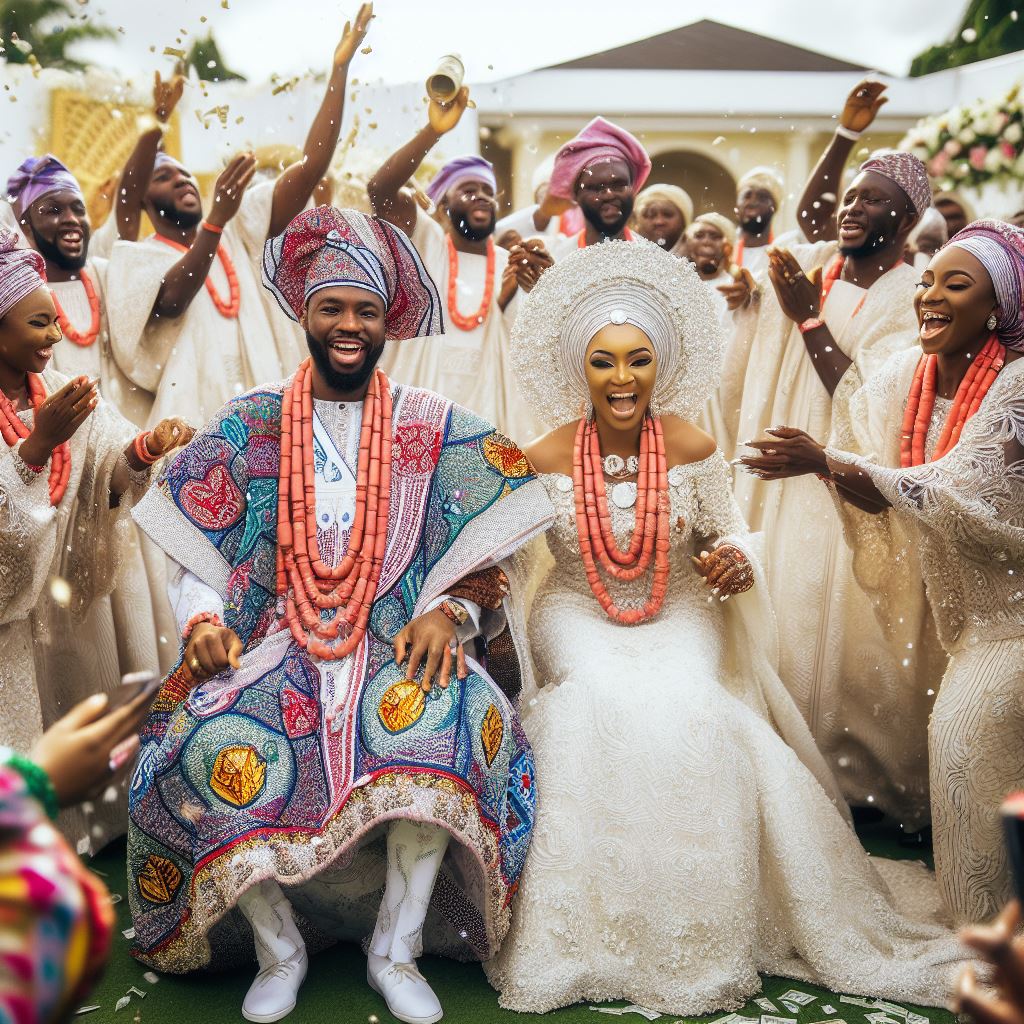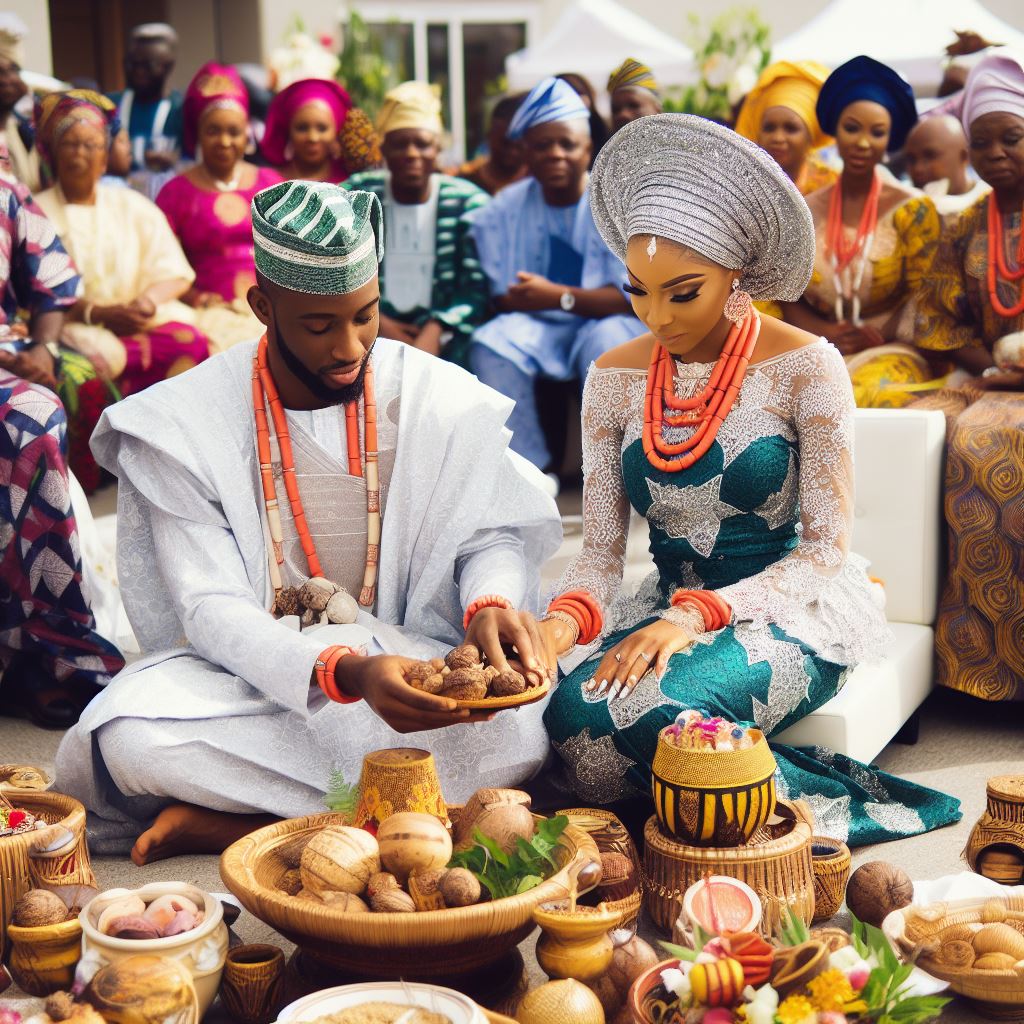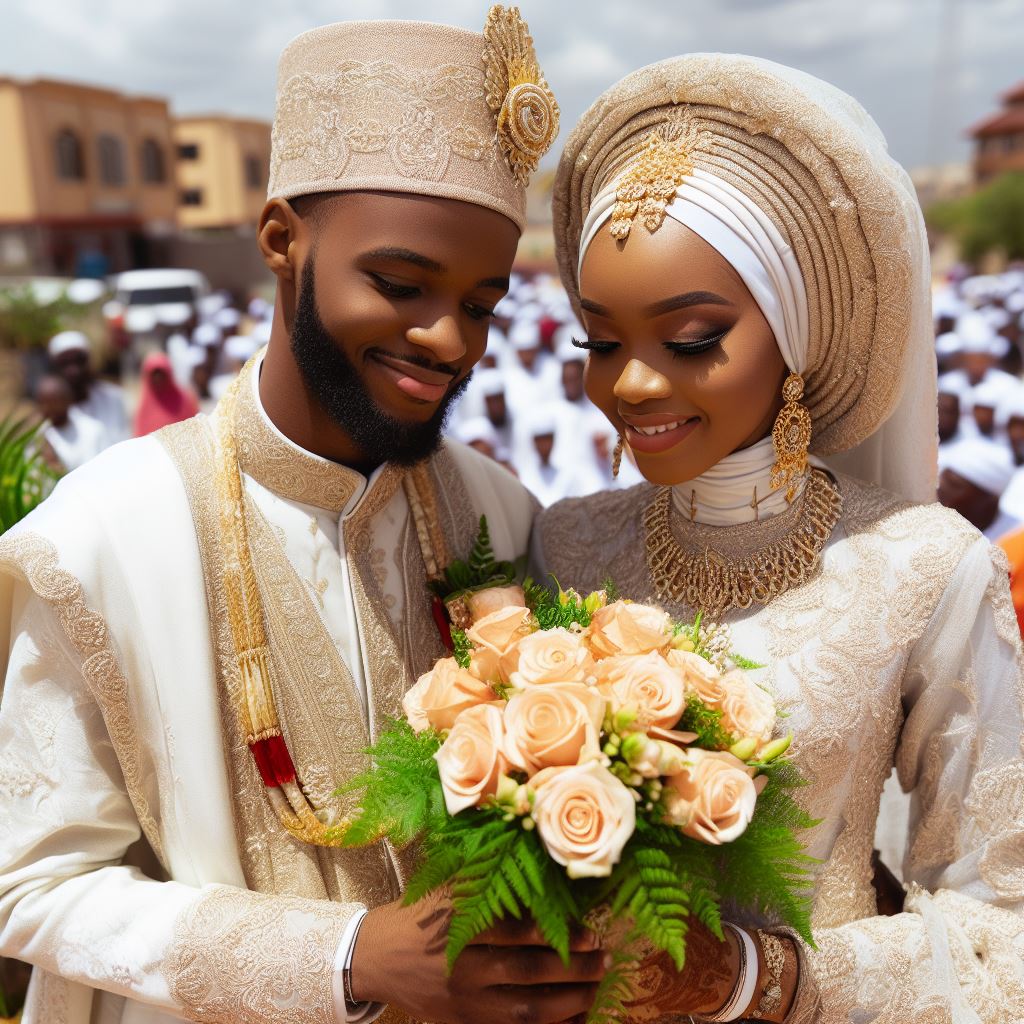Introduction
Definition of a Nigerian Marriage Certificate
The registry or court issues a Nigerian Marriage Certificate, a legal document affirming the matrimony of two individuals in Nigeria. It serves as proof of marriage.
Importance of verifying the authenticity of a marriage certificate
It assures legal recognition and safeguards the rights of the involved parties. Marriage certificates are necessary for visas, bank accounts, and spousal benefits.
It is essential to confirm that the marriage certificate is genuine and issued by the appropriate authority.
This process involves verifying the details on the certificate, including the names of the parties, date of marriage, and official seal or stamp.
You can verify the authenticity of a Nigerian Marriage Certificate through various methods.
These include contacting the registry or court that issued the certificate, examining the security features, and cross-checking the information with other relevant authorities.
Understanding Nigerian Marriage Certificates
Types of marriage certificates in Nigeria
When it comes to marriage certificates in Nigeria, there are three main types that are recognized:
- Customary Marriage Certificate: Customary Marriage Certificate issued for traditional customs.
- Christian Marriage Certificate: Christian Marriage Certificate is for church weddings.
- Islamic Marriage Certificate: Islamic Marriage Certificate covers Islamic law marriages.
Legal requirements for obtaining a marriage certificate in Nigeria
To obtain a marriage certificate in Nigeria, there are certain legal requirements that must be fulfilled:
- Age Requirement: Both parties must be at least 18, or with parental consent.
- Consent: If under 21, parental consent is necessary.
- Notice of Intention to Marry: Submit a notice of intention to marry at least 21 days prior.
- Declaration of Bachelorhood/Spinsterhood: Both must declare they are single.
- Proof of Identity: Valid identification, like passports, is mandatory.
- Witness: Two witnesses who are above 18 years old must be present at the ceremony and sign the marriage register.
Registration process for marriage certificates in Nigeria
The registration process for obtaining a marriage certificate in Nigeria involves the following steps:
- Marriage Registry: The couple must visit the nearest marriage registry to obtain the necessary forms and information about the required documents.
- Documentation: The couple needs to gather the necessary documents, including birth certificates, passports, and proof of residency.
- Notice of Marriage: The couple must submit their notice of intention to marry to the marriage registry at least 21 days before the ceremony.
- Marriage Ceremony: A recognized religious or traditional officer conducts the marriage ceremony.
- Marriage Certificate: The couple receives a marriage certificate after the ceremony upon application and fee payment.
- Registration: Register the completed certificate at the marriage registry within 90 days.
- Certified Copies: It is advisable to obtain certified copies of the marriage certificate for future reference or legal purposes.
Nigerian marriage certificates come in different types depending on the type of marriage conducted.
Obtaining a marriage certificate in Nigeria requires fulfilling legal requirements such as age, consent, and proof of identity.
The registration process involves giving a notice of intention to marry, conducting the ceremony, and registering the marriage certificate within a specified period.
It is crucial to follow these procedures to ensure the authenticity and legal validity of the Nigerian marriage certificate.
Read: The Song of Solomon: Exploring Love and Marriage
Why It’s Important to Verify the Authenticity of a Marriage Certificate
Preventing fraud and illegal marriages
Verifying the authenticity of a Nigerian marriage certificate is crucial to prevent fraud and illegal marriages.
- Some individuals may attempt to forge or create fake marriage certificates for personal gain.
- By verifying the authenticity, authorities can identify and prevent fraudulent marriages from taking place.
Ensuring legal and recognized status of the marriage
Authenticating a Nigerian marriage certificate ensures that the marriage is legally recognized.
- A valid marriage certificate proves that the marriage was conducted according to Nigerian laws.
- It provides evidence of the union and confirms that it is legally valid.
Protecting individual rights and entitlements
- Verifying a marriage certificate safeguards the rights and entitlements of individuals involved.
- It ensures that both parties are legally bound to the rights and responsibilities associated with marriage.
- Legal recognition of the marriage certificate is essential in case of disputes or legal proceedings.
- It protects the rights of spouses, especially when it comes to inheritance, property rights, and child custody.
- Without verification, individuals may face difficulties in accessing their rightful entitlements.
- Verifying the certificate ensures that individuals can exercise their rights without any obstacles.
To summarize, verifying the authenticity of a Nigerian marriage certificate is essential due to multiple reasons.
Firstly, it helps prevent fraud and illegal marriages by identifying fake or forged certificates.
Secondly, it ensures that the marriage has a legal and recognized status, providing evidence of union according to Nigerian laws.
Lastly, it protects the rights and entitlements of individuals involved in the marriage, safeguarding their interests in legal proceedings and ensuring access to their rightful entitlements.
Read: Marriage and Divorce: What the Bible Really Says
Steps to Verify the Authenticity of a Nigerian Marriage Certificate
Contact the issuing authority
- Gather the necessary information: Marriage certificate number, names of the individuals involved.
- Locate the appropriate marriage registry or court responsible for issuing the certificate.
- Schedule an appointment with the registry or court to discuss the verification process.
Document submission and verification
- Prepare the required documents for verification: Original marriage certificate, identification documents of the parties involved.
- Submit the documents to the designated authority responsible for verification.
- Wait for the designated timeline for the verification process to be completed.
Communication and follow-up
- Regularly check the status of the verification process by contacting the issuing authority.
- Establish and maintain clear communication channels with the registry or court.
- Seek assistance from legal professionals or experts if needed during the verification process.
Verifying the authenticity of a Nigerian marriage certificate is crucial to ensure its validity.
By following these steps, individuals can confidently ascertain the authenticity of their marriage certificates.
Read: The Beauty of Commitment: Top Bible Verses on Marriage

Consequences of an Inauthentic Marriage Certificate
In Nigeria, the authenticity of a marriage certificate is of utmost importance.
Verification is crucial to ensure that marriages are legally recognized and that couples enjoy their
rights and benefits.
Failure to possess an authentic certificate can have severe consequences, ranging from legal repercussions to social implications and impacts on marital rights and benefits.
Legal repercussions
- In Nigeria, presenting an inauthentic marriage certificate is a criminal offense and can
lead to legal actions against the individuals involved. - Courts may declare the marriage null and void if it is discovered that the certificate is
fake or obtained through fraudulent means. - An inauthentic certificate can also result in the revocation of any rights or benefits
granted under the law, such as inheritance or child custody rights. - Individuals found guilty of forging or using a false certificate may face imprisonment
or fines, depending on the severity of the offense. - Moreover, the stigmatization and embarrassment that come with being caught with an
inauthentic certificate can have lasting implications on an individual’s personal and
professional reputation.
Social implications
- A marriage certificate is not just a legal document, but also a social validation of a
couple’s union and status as married individuals. - A fake certificate can lead to societal ostracization and undermine the credibility and
integrity of the couple in their community. - Friends, family, and community members may question the authenticity of the marriage,
causing strained relationships and loss of trust. - Social gatherings or celebrations that would typically accompany a marriage may be
boycotted or considered invalid, further isolating the couple. - The psychological impact of social exclusion and a tarnished reputation can put a strain
on the individuals involved, leading to mental and emotional distress.
Impact on marital rights and benefits
- An inauthentic marriage certificate can deprive couples of various rights and benefits
that are legally bestowed upon married individuals in Nigeria. - These rights can include spousal support, joint property ownership, and access to certain
government schemes or benefits specifically designed for married couples. - With a fake certificate, couples may face challenges in obtaining legal recognition of
their marriage, making it difficult to enforce their marital rights in legal disputes or
benefit from state-provided protections. - As a result, couples may encounter obstacles when attempting to access healthcare,
insurance, or other crucial services that are typically granted to married couples. - The absence of an authentic certificate can also complicate matters when applying for
visas or immigration benefits that rely on proof of a genuine marital relationship.
The consequences of possessing an inauthentic Nigerian marriage certificate
are significant and far-reaching.
Individuals will not only encounter legal consequences and social exclusion but also lose their rightful marital rights and benefits.
Therefore, it is crucial to always verify the authenticity of a marriage
certificate to ensure a strong foundation for a legally recognized and respected union.
Read: Grace, Love, and Unity: Biblical Keys for Marriage
Conclusion
The importance of verifying the authenticity of Nigerian marriage certificates cannot be overstated. It’s vital for legal security and the safeguarding of marital rights.
In this section, we’ve outlined the essential steps to undertake for the verification process, from cross-referencing with official records to seeking legal counsel when necessary.
These actions can ensure that your marriage certificate is genuine and legally binding.
We strongly encourage individuals to take these necessary steps for their peace of mind and legal protection.
Authenticity is paramount when it comes to marriage certificates, as it directly impacts various aspects of your life, from inheritance and property rights to divorce proceedings.
In a world where documentation can be falsified or mishandled, being proactive in verifying the authenticity of your marriage certificate is a responsible course of action.
This upholds marriage integrity and ensures full legal protection of your rights and obligations as a married individual.
Your peace of mind and legal security are worth the effort.




